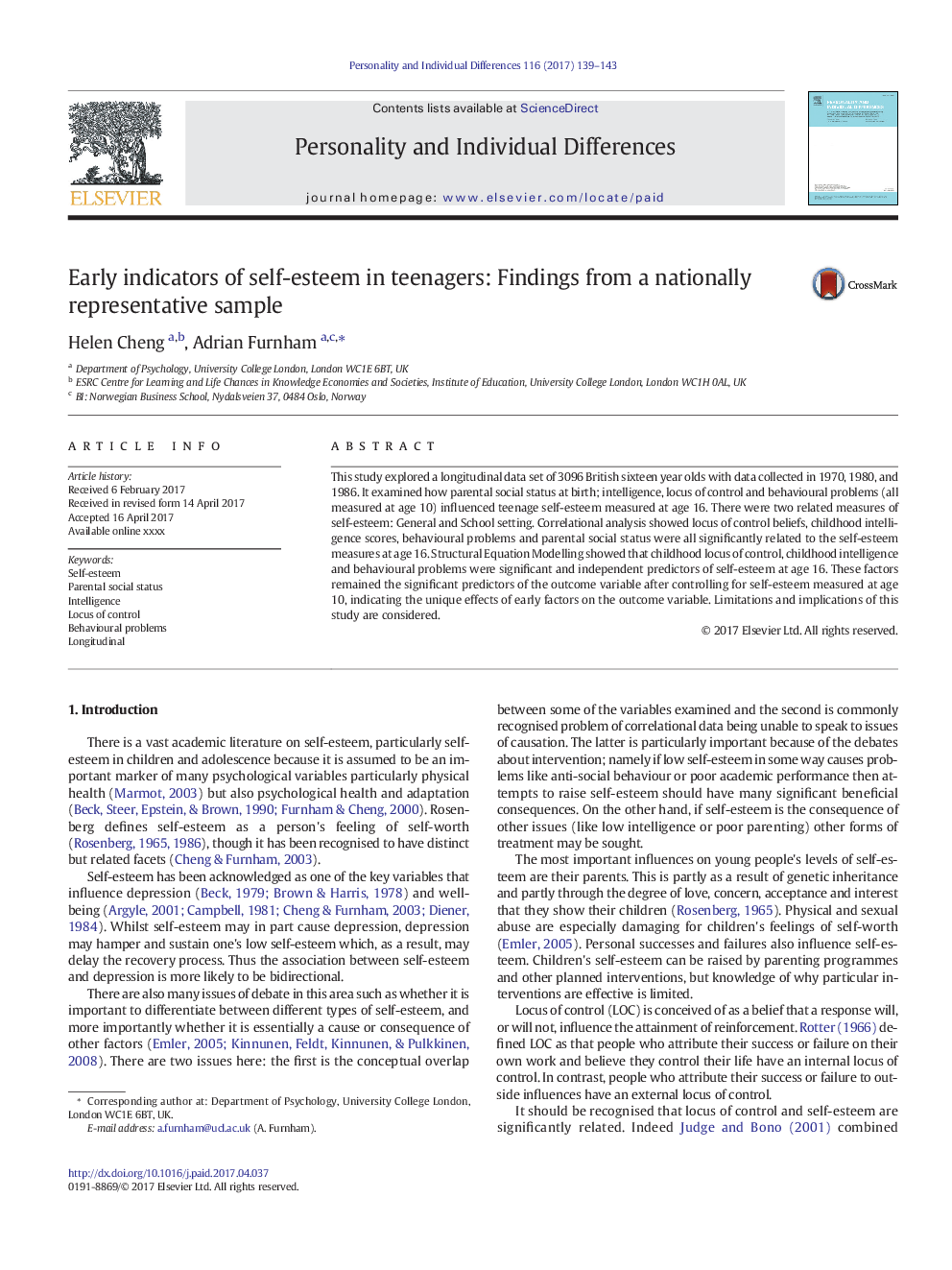ترجمه فارسی عنوان مقاله
شاخص های ابتدایی عزت نفس نوجوانان: یافته های نمونه ی ملی نماینده
عنوان انگلیسی
Early indicators of self-esteem in teenagers: Findings from a nationally representative sample
| کد مقاله | سال انتشار | تعداد صفحات مقاله انگلیسی |
|---|---|---|
| 115354 | 2017 | 5 صفحه PDF |
منبع

Publisher : Elsevier - Science Direct (الزویر - ساینس دایرکت)
Journal : Personality and Individual Differences, Volume 116, 1 October 2017, Pages 139-143
ترجمه چکیده
این مطالعه یک مجموعه داده طولی از 3096 شانزده ساله بریتانیا را با داده های جمع آوری شده در سال های 1970، 1980 و 1986 مورد بررسی قرار داد. این بررسی وضعیت اجتماعی والدین را در زمان تولد بررسی کرد. هوش، مسائل کنترل و رفتارهای رفتاری (همه در سن 10 سالگی اندازه گیری شده) تحت تأثیر عزت نفس نوجوانان در سن 16 سالگی قرار گرفتند. دو شاخص مرتبط با عزت نفس: وضعیت عمومی و مدرسه وجود داشت. تجزیه و تحلیل همبستگی نشان داد که زمینه های باورهای کنترل، معلومات اطفال، مشکلات رفتاری و وضعیت اجتماعی والدین به طور معناداری در سطح معیارهای مربوط به عزت نفس در سن 16 سالگی دیده می شود. مدل سازی معادلات ساختاری نشان داد که کنترل و هوش کودکان و مشکلات رفتاری در دوران کودکی معنی دار بود پیش بینی کننده های مستقل اعتماد به نفس در سن 16 سالگی. این عوامل پیش بینی کننده های مهم متغیر نتیجه پس از کنترل اعتماد به نفس اندازه گیری شده در سن 10 سالگی، نشان دهنده تاثیرات منحصر به فرد عوامل اولیه بر متغیر نتیجه است. محدودیت ها و پیامدهای این مطالعه در نظر گرفته شده است.

